Month: July 2018
Billy Joel at Madison Square Garden:
♪ Oh, oh, oh — for the 100th time ♪
Joel at a 2016 concert. Photo by Myrna Suarez
♫BILLY JOEL SITS on a rolling office chair in what is normally the visitors locker room at Madison Square Garden and puts daughter Della Rose on his knee.
Della has a request. She wants him to play “Don’t Ask Me Why” in that night’s show.
“What will you do when I play that?” Joel asks Della, who will be 3 years old on Aug. 12.
She slides off Joel’s knee and does a little dance, much to the delight of Joel, wife Alexis, and the crew gathered in the room. Joel takes creative director Steve Cohen aside and tells him to move “Don’t Ask Me Why” up in the set to make sure she can see it.
That night, “Don’t Ask Me Why” moved all the way up to the third song in the show. Joel dedicates it to his daughter, telling the crowd, “She’s probably going to be falling asleep soon.”
As the band starts, Joel sits at the piano and shades his eyes from the spotlight to look over to the seats where Della is already dancing with Alexis. Seeing them happy, Joel starts the countdown to signal the band that he is ready to start singing, “Uno! Dos! Uno, dos, tres, cuatro!”
♫
BILLY JOEL IS most definitely a rock star. His American tour this summer is nothing but stadiums — including Fenway Park in Boston, Wrigley Field in Chicago, Citizens Bank Park in Philadelphia. His greatest hits collection has sold more copies than any other album in history, except Michael Jackson’s “Thriller” and the Eagles’ greatest hits. He is a member of the Rock and Roll Hall of Fame and the Songwriters Hall of Fame, and he was honored by the Kennedy Center for the Arts and received The Library of Congress Gershwin Prize for Popular Song.
But these days, the Hicksville native’s life is increasingly about family — both the one that lives with him on Centre Island and the close-knit work family that has helped him put on shows for decades. On Wednesday, July 18, Joel is set to headline Madison Square Garden for the 100th time — nearly 40 years after he made his debut there — marking a milestone so high it was considered unthinkable for years.
“I remember my first show at The Garden, that was a milestone,” Joel says. “If someone would have projected that I would do 100 shows there, I would have laughed at them. I’d say you’re being ridiculous.”
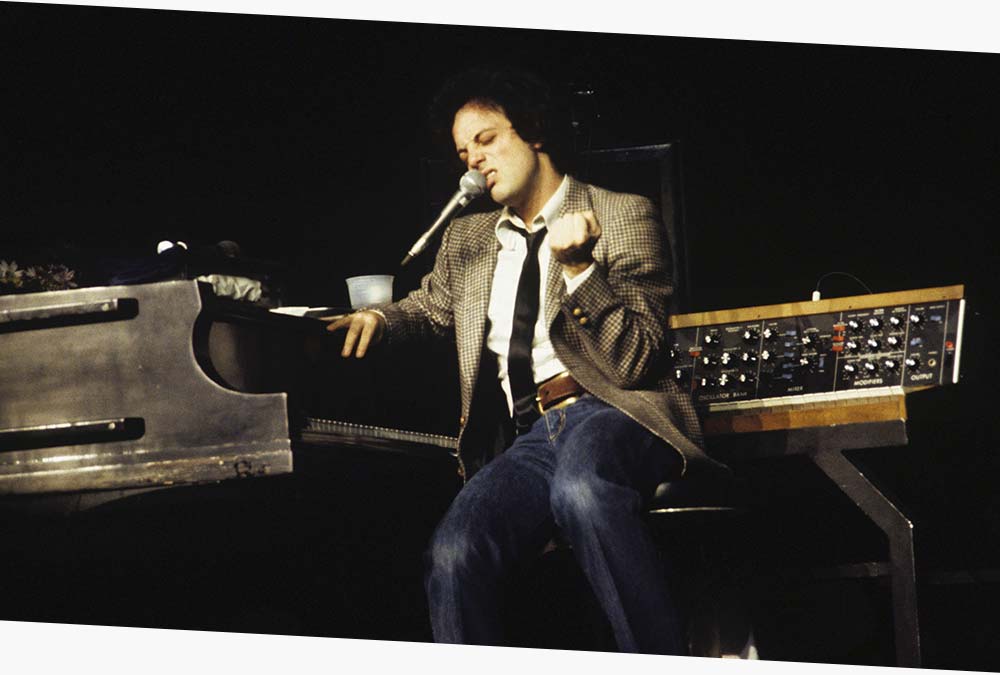
Joel performs at Madison Square Garden on Dec. 15, 1978. Photo Credit: Getty Images/Waring Abbott
Even Jim Dolan, chairman and CEO of The Madison Square Garden Co., said the record seems unbreakable. “Billy Joel is one of the greatest figures in rock and roll history, and he has now accomplished something that might never be equaled — 100 shows in a single venue,” Dolan said in a statement. “This milestone is a testament to the strength of Billy’s music and his incredible connection to his fans — many of whom come from Long Island. All of us at The Madison Square Garden Company look forward to he, and his fans, continuing to make The Garden their home well into the future.”
Joel jokes that he accomplished the stunning feat simply because he didn’t die. (“The secret of success? Just don’t die!” he says, laughing. “The secret of longevity? Stay alive!”)
When pressed for a serious answer, he laughs again. “I don’t have the slightest idea,” says Joel, who began playing monthly at The Garden in 2014, the first (and only) arena-sized residency in music history. “The audiences are great. The venue is great. It’s a world-class venue. To have a residency there is a dream already. I never imagined that anyone could have a residency at The Garden. We’re a franchise. We’re like a sports team. The whole thing has just been one crazy, exhilarating night after another.”
Unlike many superstar headliners these days, Joel keeps most of his show preparations secret. He doesn’t sell VIP concert packages that include access to his sound check. He doesn’t offer meet-and-greet sessions before his shows. He doesn’t even sell tickets to the front row of seats, for that matter. (Those seats are given to excited fans that Joel’s crew finds in the upper-level seats.)
However, Joel granted Newsday access to the backstage preparations of his Madison Square Garden concert on May 23, the 98th Garden show of his career, to see what goes into putting on his show at the arena. More than 1,500 people work at every Joel concert — including everyone from the musicians to the ushers — and most have worked at many, if not all, of the shows in the residency.
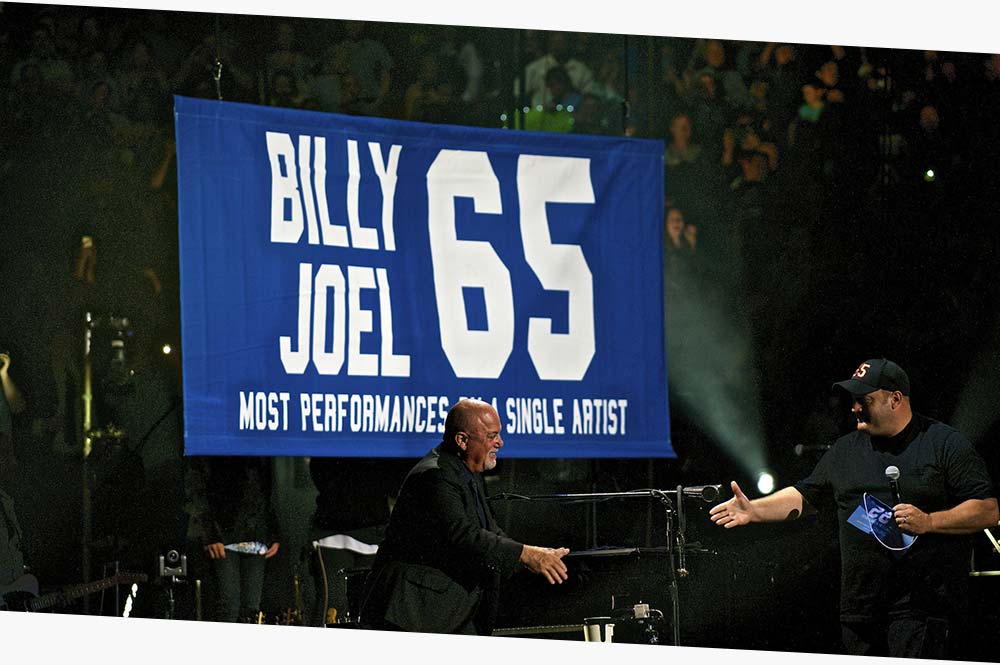
Kevin James presents Billy Joel with his recognition for a record 65th appearance at Madison Square Garden on July 1, 2015. Photo Credit: Robert Altman / Invision / AP
♫
MOST DAYS START around 8 a.m. with production manager Bobby “Boomer” Thrasher, who handles the setup of the stage and the logistics of putting together everything backstage, meeting with his team. “I wouldn’t call it a science,” says the Ontario native who started with Joel 36 years ago building stages and quickly moved up the ranks. “It’s called a living.”
Thrasher, who has also worked on tours with Bruce Springsteen and Elton John and received the 2018 Parnelli Audio Lifetime Achievement Award, says the residency has given a lot of people a stability that is almost unheard-of among music professionals. “It’s almost like a cab medallion — once you get it, you don’t want to lose it,” says Thrasher, who proudly says his sons Ted, the drum tech, and Lucas, who helps build the stage and works the teleprompter, also work for Joel. “This is where you want to be. This is heaven.”
Most of Joel’s tight-knit crew say the atmosphere comes directly from The Piano Man himself. “With other acts, management handles the hiring and they are often deciding based on the dollar,” Thrasher says. “For us, Billy handles it and he decides based on what’s best for the show… He brought all of us here. We’re his family. We’re his comfort factor and he’s our comfort factor.”
Joel says he believes the key to keeping his band and crew together is mutual respect. “A lot of these guys have been with me for 40 years or longer,” he says. “[Sound engineer] Brian Ruggles has been with me for 50 years. … I respect what they do. I know how hard they work and I hopefully compensate them accordingly. I acknowledge that everyone is as important as everybody else. I know I’m out front, but I still feel like I’m playing in a band.”
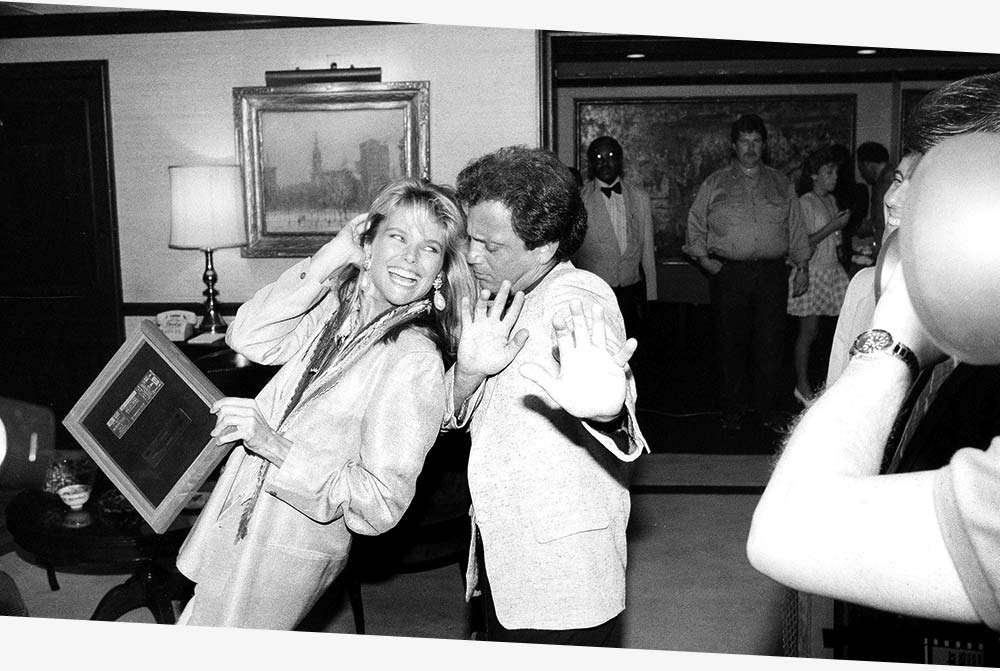
Billy Joel dances with then girlfriend Christy Brinkley as she holds onto Joel’s Madison Square Garden Platinum Ticket on July 5, 1984. The Garden Platinum Ticket was presented to music entertainers who attracted more than 250,000 fans to The Garden. Photo Credit: Associated Press / Mario Suriani
Joel has his own dressing room at Madison Square Garden, of course. Actually, it’s a well-appointed suite of rooms. But he prefers to be in the main production room, at the end of Thrasher’s table, not too far from the pizza boxes and chicken wings set up for the band and crew.
That’s usually where the VIPs come in to meet him before the show. It’s where they’ll gather to sing “Happy Birthday” to Joel’s agent Dennis Arfa and saxophonist Mark Rivera before they take the stage. It’s where creative director Cohen likes to arrive around 10 a.m. on show days, hours before he really needs to be there.
“They’re all my family and we only get to see each other once a month so this is where you want to be on a workday,” Cohen says. “It’s not like other tours where you wait until catering is all set up.”
♫
THE MUSICAL PLANS for the day start with Cohen, who comes up with a rough draft of the night’s set list. “That’s usually based on looking at what we’ve done in the past and what we’ve been talking about that might be fun to add,” says Cohen, who proudly says he is one of only four people in the organization, including Joel, to be at all 100 shows at The Garden, along with sound engineer Ruggles and agent Arfa. “Billy likes to not sing certain songs back to back. Some guys like to play certain songs. I filter all that stuff.”
Around 4 p.m., the closing half of “Movin’ Out (Anthony’s Song)” floats into the production room from sound check, as Cohen talks. The band — keyboardist/musical director Dave Rosenthal, guitarists Tommy Byrnes and Mike DelGuidice, the horn section of Mark Rivera, Crystal Taliefero and Carl Fischer, bassist Andy Cichon and drummer Chuck Burgi — has started without Joel, who is caught in the traffic caused by President Donald Trump’s visit to Long Island.
When the band kicks into “My Life,” Cohen pauses to listen. After a few notes, he says, “That’s Mike DelGuidice singing. Billy must not be here yet.”
Cohen says the residency has succeeded because it is “like the perfect storm.” “You have Billy, who is like the hood ornament for the city of New York; Madison Square Garden, which is the most famous arena in the world; and Billy playing ‘New York State of Mind’,” he says. “Every single night, I get goose bumps. I think I remember the electricity of seeing Frank Sinatra walk on the stage in Las Vegas. That’s the only kind of thing I can equate this to. … The sum is greater than the parts.”
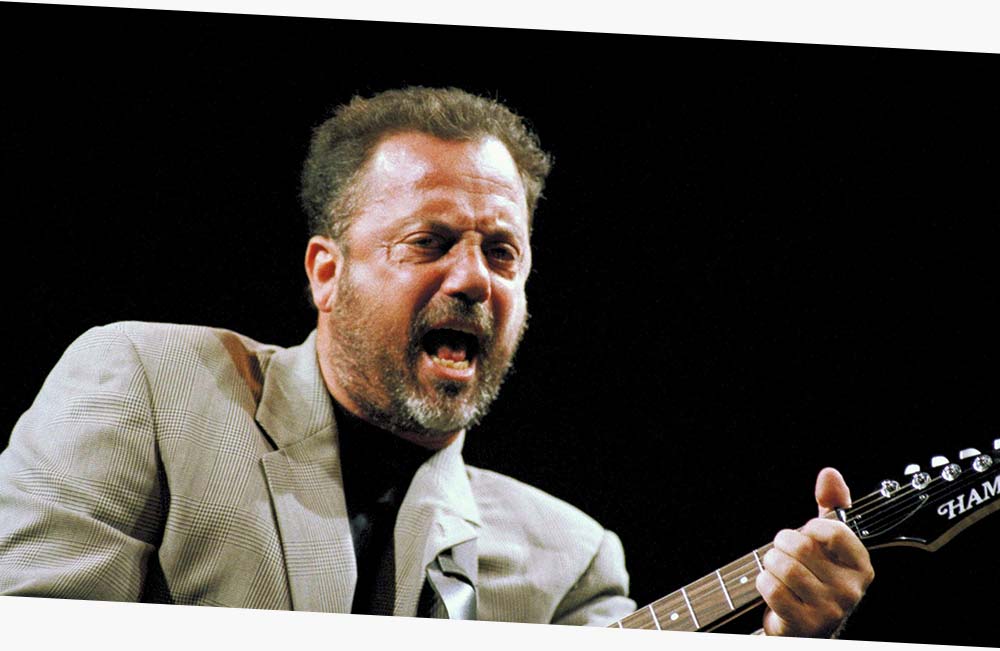
Joel belts out a tune while playing guitar at The Garden on Oct. 2, 1993. Photo Credit: Associated Press / Paul Hurschmann
While the band runs through some other songs, most of the people in the production room continue their work. But when the band moves into something unfamiliar, everyone looks up. “What are they playing?” asks deputy production manager Liz Mahon, before several people go to find out.
It turns out the band is rehearsing “Half a Mile Away,” a song from Joel’s 1978 album “52nd Street” that he has never played in concert before.
“We dabbled with it and thought, ‘Let’s give it a shot,’ ” Rosenthal says later. “He has so many great songs to choose from. We like to mix it up a little bit.”
Rosenthal says that every sound check with Joel is different. On this one, the band wanted to warm up a bit since it had been a while since they had all played together.
♫
WHEN JOEL ARRIVES, they try “Half a Mile Away” again, then Joel leads them into a bit of the Gloria Gaynor disco classic “I Will Survive,” adopting a falsetto until Taliefero takes over in full voice.
“We’re not faking it,” Rosenthal says afterward. “We’re really having a good time.”
The band goes through “Goodnight Saigon,” which Joel wants in the set as a tribute to Memorial Day, and that segues into The Doors’ “The End.” Joel says they also need some summer-themed songs to mark the holiday.
“I thought ‘Summer Wind’ might be kind of cool,” Byrnes says, as they try it out. Soon, they are all doing bits of “Hot Fun in the Summertime” and “Summertime Blues,” before going into Led Zeppelin’s “Good Times, Bad Times.”
They also practice “I Go to Extremes,” with the five-part harmonies sounding extra-crisp in the empty arena. As they wrap up, Joel breaks out a bit of “I’m in the Mood for Love” and “Tangerine” on the piano. Burgi keeps the beat while the rest of the band leaves the stage.
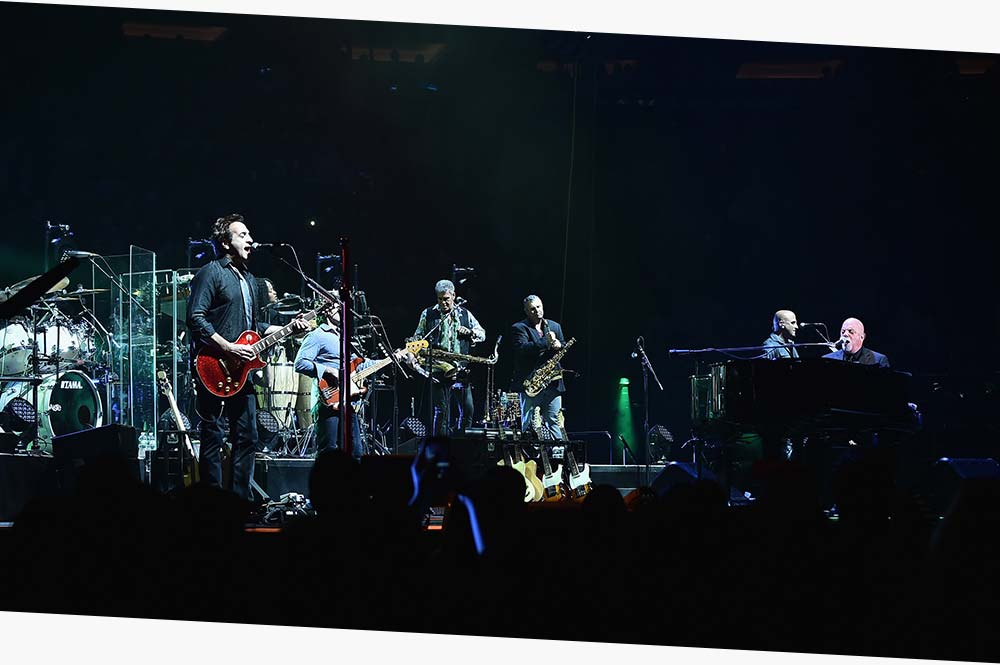
Joel performs at MSG on April 14, 2017. Photo Credit: Theo Wargo/Getty Images
Rosenthal says later that he was happy with how “I Go to Extremes” sounded. “We hadn’t done that song in a really long time,” he says. “It’s a remarkable group of musicians who can come together like that. We haven’t played together in six weeks. We didn’t rehearse. We did a sound check, played a few songs and here we go. The band is like turning over an old Chevy. You turn the key and it goes. It takes a certain type of chemistry in a band to be away and then be on 10 now. It’s a certain type of energy and a lot of that comes from Billy because he’s able to do that too.”
Sitting at Thrasher’s table before the show, Joel still isn’t sure about doing “Half a Mile Away” in the show. He asks Cohen and they decide to go for it.
Before Joel plays it in the show, he warns the crowd about the song. “I wrote it, I recorded it, I forgot about it,” he says. “We’re on the edge here.”
The crowd offers its encouragement. “I don’t even know how it starts,” says Joel, before the band kicks into the disco-era jam which segues into “I Will Survive.”
“I didn’t expect it to work that well, but I don’t know that it’s going to become a dedicated part of the show,” Joel says later. “We’ll just keep taking stuff out of mothballs and try it out. It’s almost like doing new material if you haven’t done it in a long time.”
It was a fun moment, the kind that sticks out in Joel’s memory. His favorite moments at Madison Square Garden are the ones that involve special guests. “John Mayer is such a good musician, it’s great working with him,” he says. “The night we had Paul Simon and Miley Cyrus, that was fun. … Kevin James did some wild stuff with us.”
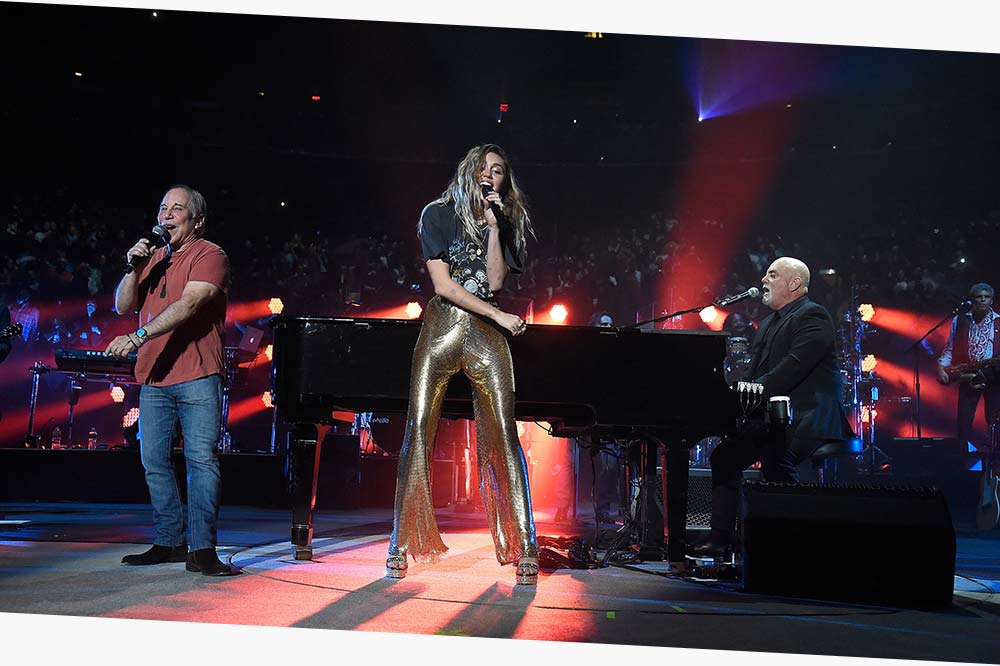
Paul Simon, Miley Cyrus and Billy Joel perform at Madison Square Garden on Sept. 30, 2017 during one of Joel’s shows. Photo Credit: Getty Images/Kevin Mazur
For Joel, the night that stands out most in his head was one that wasn’t particularly good. “I was sick and I took all kinds of medicine and cough syrup and cold medicine and then somebody had the bright idea of bringing me tea with whiskey in it and honey to help my cold,” he says. “This was right after 9/11 and about halfway through the show, all that [expletive] kicked in and I just started rambling, talking about American war battles like Iwo Jima and Normandy and the Alamo. I was all pissed off about being attacked. I just started yelling, ‘Who the hell do they think they are?’ and ‘We’re not going to take this!’ And by the end of the show, my crew comes over and says, ‘Are you OK?’ I was kind of out of it…. I was so angry about 9/11 that something had to give. I had to say something. I don’t usually get up on a soapbox, but that particular time I was so emotionally overwrought that, yeah, I did.”
That night sparked plenty of questions about Joel and his drinking, though it quickly became overblown, even after a stint in rehab. “People think I’m the Dean Martin of rock and roll and that I’m drunk whenever I’m on the stage,” he says. “That would be impossible. That show I did overmedicate. It stands out in my memory. That was terrible. I’ll never do that again. I felt bad that my throat was so bad.”
In a way, it was similar to another remarkable night in Joel’s Madison Square Garden history — Aug. 21, 2017, the concert the week after the white supremacist riots in Charlottesville, Virginia, over the removal of a statue of Confederate Gen. Robert E. Lee.
“I was angry then too,” Joel says. “I wanted to make a statement, but I didn’t want to do it verbally. I wanted to do it in a symbolic fashion. And I thought, ‘This will be the night for me to wear the yellow star.’ ”
Joel says his decision to wear the Star of David, a symbol of Jewish identity connected with the Holocaust, offended some. “I don’t know if they know that my family was persecuted by the Nazis,” he says. “Most of my family was slaughtered in Auschwitz. Most of my father’s family was fortunate enough to get out just before they were sent away. … I was protesting Trump saying there were good people on both sides. No. No, no, no. You can’t equivocate evil like that, I’m sorry. Nazis are bad. Ku Klux Klan? Bad. Those aren’t good people.”
Joel has often said he tries to stay away from politics because he doesn’t want to influence people in a way that could be wrong. However, he felt he had to stand up against white supremacists.
“I was really upset about what happened in Charlottesville,” he says. “It was an indicator of what was happening in the entire country and it really upset me. I’m still upset to this day about that. I’m personally offended by Nazis. They personally offend me. The Ku Klux Klan personally offends me. I don’t put up with that. Not only did my father’s family go through that, but my father was in the Army with Patton fighting Nazis as a soldier. Now these stupid punk neo-Nazis are marching through the streets of my country? After my father went over there to stop Nazism? I’m personally offended by that. I think if my father’s generation saw these stupid idiots walking around with swastikas on their armbands, they’d smack the living [expletive]out of them. I find it personally offensive. We fought a war to put an end to that kind of thing. These morons are going to try to resuscitate it. No. If the current leader of our country is OK with that, it’s not OK with me.”
Though Joel’s political statements are few and very far between, he says he does appreciate how his residency offers him a monthly outlet to communicate with his audience. “There is a little bit of the town crier in it,” he says. “I’m a New Yorker. I kind of sense what other New Yorkers are feeling. I think it would be remiss of me not to remark on something happening at the moment. It depends on what it is, though.”
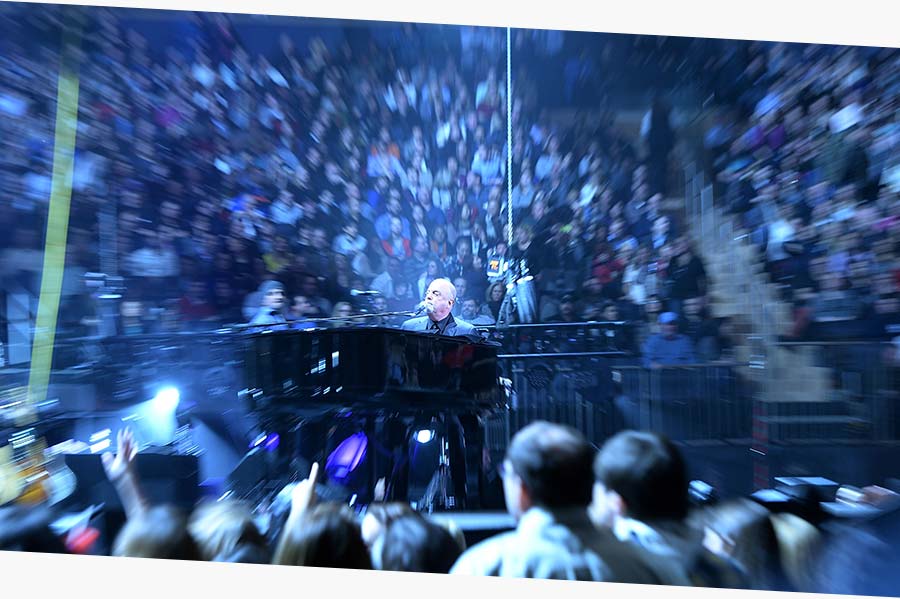
Joel performs at MSG on Jan. 27, 2014. Photo credit: Andrew H. Walker / Getty Images
♫
JOEL HAS CONCERTS scheduled through the end of this year and expects to continue next year, when he turns 70. When the residency began, he famously said that the shows would continue for as long as fans wanted to see him, but now it has become clear that may not come any time soon.
Joel says he may call an end to his residency when his body can’t handle it any more. “There is definitely a physicality to the job and the older I get, the more apparent it becomes to me,” he says. “If I can’t do it well, or as well as I want to, I’m going to stop. I admire the athletes who took themselves out of the game, the Joe DiMaggios, the people who walked away before they lost it. That’s an honorable thing and I’d like to be able to do that. I did it with recording and songwriting and I’ll probably do it with performing as well.”
The discussion of when to stop is one that comes up with many of his friends. Paul Simon plans to retire from touring in September, with a massive show at Flushing Meadows-Corona Park in Queens. Paul McCartney, on the other hand, has just announced plans for a new album and another world tour.
“Paul said, ‘What am I gonna do? Sit around and watch the telly?’ ” Joel says, adopting the Beatle’s British accent.
“Bruce’s thing was, ‘Well, it just seemed like a good idea,’ ” Joel says, doing his best Springsteen.
“[Don] Henley said, ‘Well, this is what I do. What else would I do?’ ” Joel says. “They’re all right for their own reasons. I find myself agreeing.”
For years, he has dropped hints about retirement. But after replacing both hips and working out some issues with allergies, Joel now moves and sounds better than he has in decades. And he clearly lights up when his family comes into a room.
Joel says he gets a kick out of seeing Della run around backstage at The Garden. “I don’t think she knows what a rock star is, which I kinda dig, I’m just Daddy,” he says. “If I start to sing in the house, she says, ‘No, no, shut up. I wanna sing.’ She tells me to shut up. So I joke around. I say, ‘People want to pay money to hear Daddy sing.’ And she says, ‘No, no, no, I wanna sing.’ She doesn’t care. It’s cute. I’m just Daddy. And all the folks backstage, those are all her aunts and uncles. They’re crazy about her.”
Della isn’t quite 3 years old, but the dramatic element of her personality is already on display. “Alexa, my oldest daughter, was always definitely musical — she took piano lessons,” Joel says. “Della is musical, but I don’t know if it’s the same kind of musical as Alexa. She likes to sing and fool around on harmonica. She’s more theatrical, more an actress type. The little one, Remy, I think she’s going to be an attorney. She’s very serious. She looks like she’s going to be a deep thinker.”
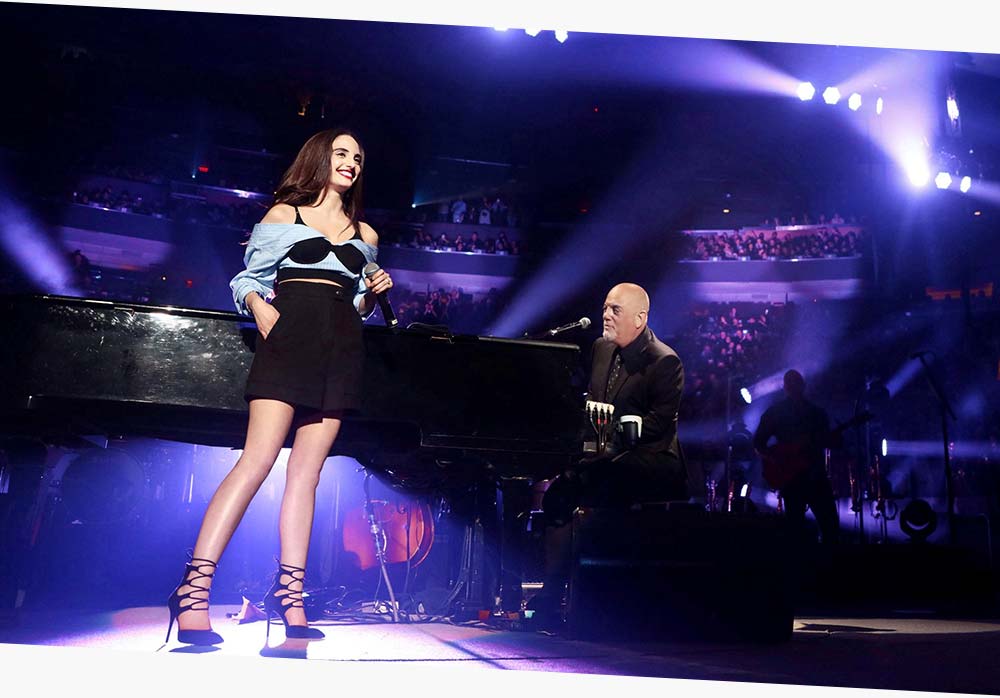
Joel performs with daughter Alexa Ray in 2018. Photo Credit: Myrna Suarez
Joel says he would be happy with his daughters no matter what they do. “It would be very convenient if the younger daughter is an attorney and she looks after the rest of the family,” he says, laughing about planning her career even before her first birthday in October. “That would work out fantastic. We don’t have any lawyers in my family.”
Joel is clearly not interested in doing massive tours any more — the long, tedious ones that he says make him feel like Willy Loman from “Death of a Salesman.” But he likes his current pace of work and wonders if stopping completely would be a mistake.
“Maybe when you stop doing it is when you stop being alive,” he says. “What did Dylan say, ‘He not busy being born is busy dying’? There’s probably something to that. If you do not continually invent yourself, if you don’t do what your life force is telling you to do, you begin to die.”
For Joel, he’ll know it’s time to retire the way some people define art. He’ll know it when he sees it, or feels it.
“One night, I’ll know right then and there and I’ll say, ‘That’s it. Don’t put any more tickets on sale,’ ” Joel says. “One thing I know, I’m not going to do a farewell tour. If I’m going to stop, I’m just going to stop. I’m going to take myself out of the lineup like DiMaggio.”
Until then, Joel plans to rock on.
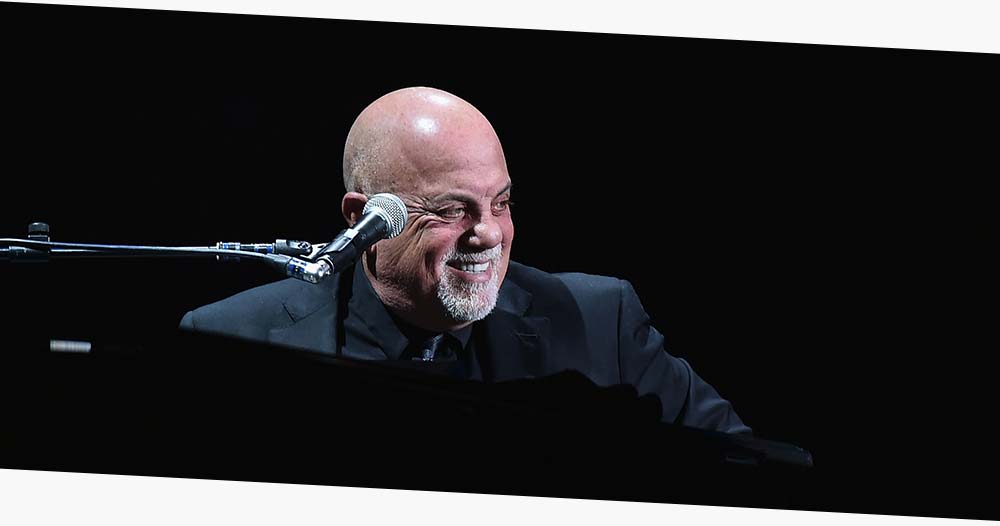
Joel performs at MSG on April 14, 2017. Photo Credit: Theo Wargo / Getty Images
Open Space Chapters
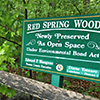 Overview:
Overview:Public Space, Private Benefit
 Map:
Map:Explore land Nassau bought, the deals and access issues
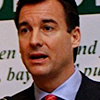 Part 1:
Part 1:How Nassau’s open-space purchases benefited political insiders
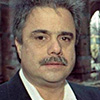 Part 2:
Part 2:Inside the land deals with connected LIers
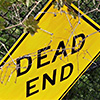 Part 3:
Part 3:Taxpayers bought this land. But much of it is hidden
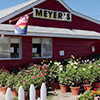
Nassau land deals saved acres of pristine property
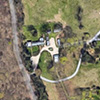
Most land preserved through bond acts was on North Shore
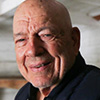
Two landowners passed over for open space purchases
 Video:
Video:Watch: Visit by air and by foot Nassau’s hidden public spaces
Hed TK Here
Opioids: A class of drugs that include the illegal drug heroin as well as pain relievers available by prescription, including Oxycontin, Vicodin, codeine and morphine, according to the National Institute on Drug Abuse. Opioids can include drugs derived directly from the opium poppy plant (opiates) or synthetically produced in a lab.
Heroin: A drug processed from the seed pod of certain types of poppy plants grown in Central America, South America and southern Asia that gives users a sense of euphoria or “rush,” according to the DEA. It is highly addictive — with regular use, tolerance develops and users must use more heroin to achieve the same intensity. Heroin is classified as a Schedule I drug, which means the federal government believes it has no acceptable medical use and has a high potential for abuse. It is two to five times more potent than morphine.
Fentanyl: A synthetic opioid responsible for many of the fatal overdoses reported on Long Island. Fentanyl is 30 to 50 times more potent than heroin and 50 to 100 times more potent than morphine, according to the DEA. When used for medical purposes, it is used via an injection, a transdermal patch or in lozenges. As a street drug, it is sometimes mixed with heroin. It is typically swallowed, snorted or injected.
Naloxone: A medication better known by the brand name Narcan, it is used to halt and reverse opioid overdoses. It can be administered through injections or a nasal spray.
Morphine: A natural substance derived from poppy seed pods that is a key ingredient in the production of heroin and is also used legally as anesthesia or as a pain reliever. Morphine is 360 times stronger than aspirin or acetaminophen. It is used in a variety of forms, including tablets, capsules, suppositories and injections, according to the DEA.
Methadone: A long-acting synthetic drug developed by German scientists during World War II because of a shortage of morphine, it is effective in treating pain and opioid addiction. Methadone is three times stronger than morphine but does not produce the same euphoric effect. It is usually mixed with water and ingested, although illicit users of the drug may use it intravenously.
